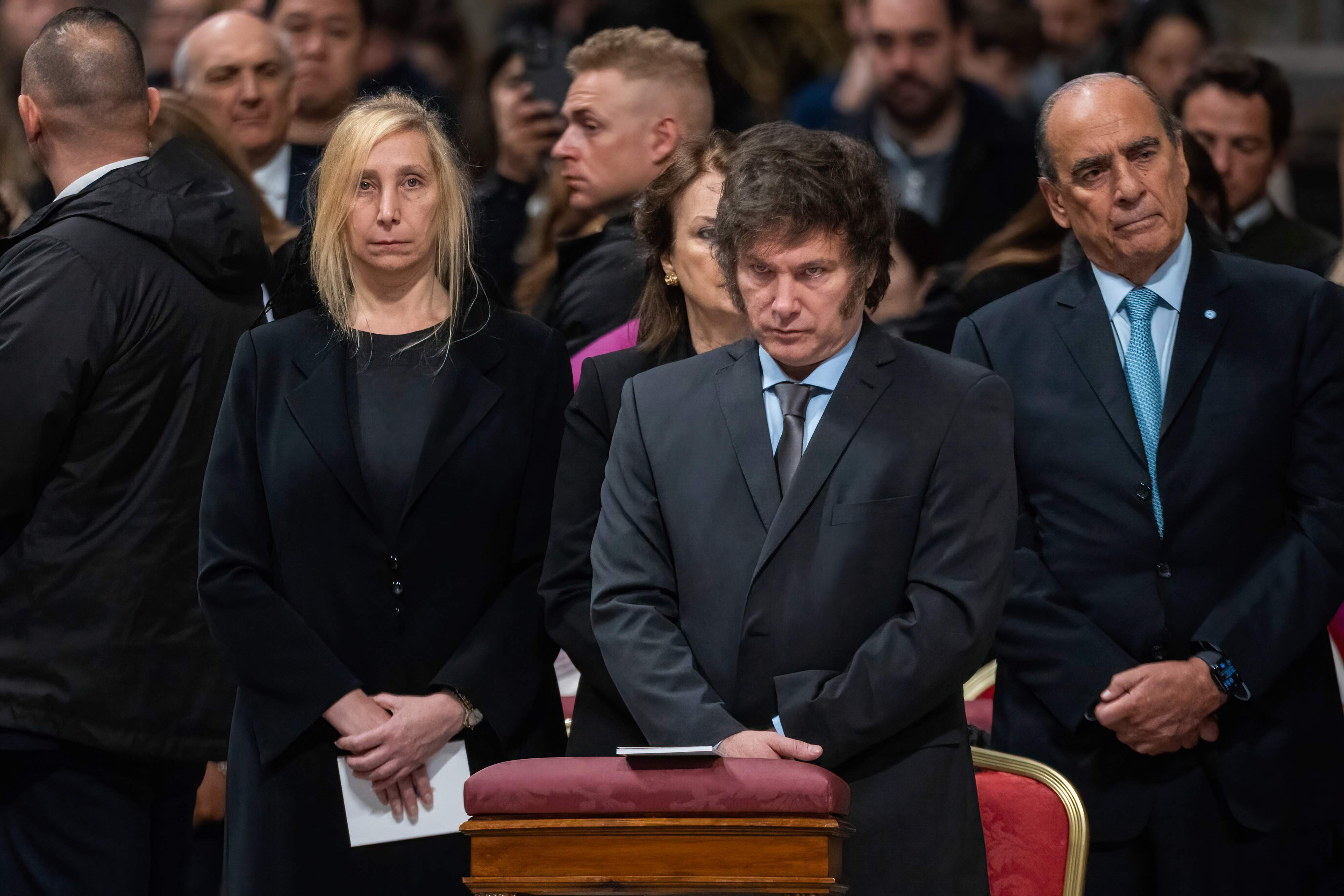Pedro Sánchez is maintaining the confrontation with Javier Milei and has raised the decibel level of the diplomatic conflict between Spain and Argentina: the government in Madrid has this Tuesday announced its decision to withdraw its ambassador from Buenos Aires. "She will return home and Argentina will continue without an ambassador", said Spanish foreign minister, José Manuel Albares, in the press conference following the weekly cabinet meeting, after announcing on Sunday that the government was recalling its diplomatic head in the Argentinian capital for consultations. The escalation in the clash between the two countries comes after Milei refused to apologize for calling Begoña Gómez "corrupt", and instead, had pointed at Sánchez, saying that it was he who should apologize to the Argentine government.
Spanish foreign minister Albares in Tuesday's press conference: "There are many moments when a party [the PP] is opposition, but there are some moments when it must be Spain, and on Sunday, before Javier Milei, it needed to be Spain."
In the press conference, Albares argued that the clash between Spain and Argentina is "a unique case" because "there is no precedent" in the history of diplomatic relations in which "the head of state of one country goes to the capital of the other to insult the institutions". "It's flagrant interference in internal affairs", he said, in addition to asserting that "political ideas are debatable, positions too, but institutions and governments are indisputable". Sources close to the executive argue that attacking Begoña Gómez, the wife of the Spanish prime minister, is attacking a state institution.
The Argentine president, who had made his statements at a global far-right gathering in Madrid to which he had been invited by Spain's Vox party, was also accused by foreign minister Albares of "attacking the good faith and hospitality" of the Spanish state, since on his trip to Spain, Javier Milei was permitted to land at the Torrejón de Ardoz air base and was granted protection by the Spanish police at all times during his visit. The Spanish minister reiterated that an apology was needed from Javier Milei for his assertion that Begoña Gómez was "corrupt".
Albares was also asked by the media about the question of who threw the first stone in the clash between Spain and Argentina: specifically, at the beginning of May, Spanish transport minister Óscar Puente insinuated in a public statement that Javier Milei "ingested substances". This Tuesday, the foreign minister responded that Puente indicated that "if he had known about the repercussions of his statements, he would not have made them" and he "made an apology". He made it clear that this response is very different from that of the Argentinian leader.
Albares underlined that he had taken three diplomatic decisions on the crisis in just three days. On Sunday, the Spanish ambassador in Buenos Aires had been called for consultations in Madrid. The next day, Monday, he summoned the Argentine ambassador in Madrid to the headquarters of his ministry. And this Tuesday the Spanish government took the decision to withdraw the Spanish ambassador to Argentina. Sources close to the foreign minister assert that even more drastic decisions may be taken if the conflict between the two countries continues.
Feijóo says Sánchez should reconsider the diplomtaic withdrawal
Meanwhile, the president of the People's Party (PP), Alberto Núñez Feijóo, has demanded that Sánchez reconsider the withdrawal of the Argentine ambassador. In a post on X, the leader of the Spanish conservatives accused the Spanish PM of electoralism and putting his own spin on the conflict with the Latin American country. "The electoral interests of Sánchez are not more important than those of Spain in Argentina," he wrote, adding that the controversy is an "improper overreaction by those who did not withdraw their ambassador from Russia over the invasion of Ukraine". Feijóo concluded his message by saying that Spaniards deserve their politics to be "more serious".
Los intereses electorales de Sánchez no son más importantes que los de España en Argentina.
— Alberto Núñez Feijóo (@NunezFeijoo) May 21, 2024
Es otra sobreactuación impropia de quien no retiró al embajador en Rusia por la invasión de Ucrania.
Exijo que se reconsidere y se pare esta deriva.
Merecemos una política más seria.

